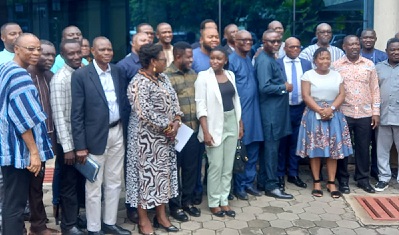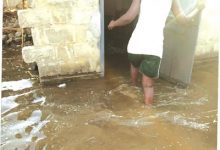
The World Vision Ghana has expressed worry about the high number of Ghanaians who still lack access to safe drinking water.
It has, therefore, underscored the need for increased investments for sustainable Water Sanitation and Hygiene (WASH) services delivery for the citizenry.
Speaking at a day’s engagement with some parliamentarians on enhancing WASH services delivery in Northern Ghana, National Director of World Vision Ghana, Mr Dickens Thunde said the recent Population and Housing Census (PHC 2021) report revealed that about four million people in Ghana still lacked access to safe drinking water, with wide regional disparities.
While access to safe drinking water in the Greater Accra Region stood at 97.6 per cent, he bemoaned that access to safe drinking water in the North East Region stood at 54.8 per cent.
Touching on access to household toilet facilities, he revealed that all the five northern regions were doing better than other regions with the exception of the Greater Accra Region, adding that “this good performance can be partly attributed to the good efforts of developmental
partners such as the United Nations Children’s Fund (UNICEF), the World Bank and his outfit among others.”
He revealed that in 2018, the story was different, as the regions in northern Ghana were way below the national average for access to toilet facilities at the time.
This, he said, meant that with consistent investments, access to WASH services could improve significantly.
In furtherance, Mr Thunde mentioned that to create a better world for children, access to safe drinking water and toilet facilities in schools must also be of concern to authorities.
Making the school environment conducive for the girl-child, particularly for those who had reached the age of puberty, he said was also very necessary.
According to him, available research had shown that a number of maternal deaths were linked to infections due to poor hygiene practices, adding that just a simple act of hand washing by mothers and birth attendants could reduce the risk of mortality for newborns by 44 per cent.
“Nothing can be more important to child wellbeing than access to safe water, improved sanitation and hygiene,” he stressed.
In a speech read on his behalf, the Speaker of Parliament, Mr Alban Bagbin, said parents in particular, also had major roles to play in the enhancement of water, sanitation and hygienic practices in the training of children.
He said “The upbringing of every child must include an orientation and socialisation in water and sanitation needs of the individual and the community,” this, of course, ought to be complemented with the right institutional arrangements, infrastructure and other provisions which can only be assured by government and state institutions and certainly with the support and participation of development partners.”
He bemoaned that Ghana could not progress as expected, if more than half of its citizens regularly used communal restrooms with more than 31 per cent of rural dwellers practicing open defecation.
He described water and hygiene as very basic to existence, adding that where the delivery of such services were inadequate and far between, the lives of those denied such services would be in jeopardy.
BY RAISSA SAMBOU







